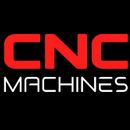Understanding the Five Factors of Production in CNC Machining

What Are the Five Factors of Production?
In economics, the factors of production refer to the resources used to create goods and services. These factors are vital to the production process and can significantly impact the efficiency and output of various industries, including CNC (Computer Numerical Control) machining. The five factors of production are land, labor, capital, entrepreneurship, and knowledge. Let us delve into each factor, highlighting its importance in modern manufacturing and CNC machining.
1. Land
Definition: In production, "land" encompasses not only physical land but also all natural resources utilized in the production process.
Key Components of Land:
- Natural Resources: Raw materials such as metals, minerals, and lumber.
- Location: Proximity to suppliers and markets can enhance production efficiency.
- Environmental Factors: Soil quality, climate, and water availability are critical for specific industries, particularly agriculture.
Relevance to CNC Machining:
- Resource Availability: Access to high-quality raw materials like aluminum or steel is crucial for CNC machining.
- Location of Facilities: CNC machine shops strategically located near suppliers can minimize transportation costs and lead times.
| Aspect | Importance |
|---|---|
| Access to Raw Materials | Critical for manufacturing quality components. |
| Facility Location | Reduces shipping costs and increases efficiency. |
| Environmental Regulations | Affects operational practices and sustainability efforts. |
2. Labor
Definition: Labor refers to the human effort, skills, and expertise involved in the production process.
Key Components of Labor:
- Skilled Labor: Workers trained in CNC machine operation and programming.
- Unskilled Labor: General laborers supporting the production environment.
- Workforce Management: Effective management of labor resources can boost productivity.
Relevance to CNC Machining:
- Training and Skills Development: Ongoing training programs are necessary to keep operators updated with the latest technologies and best practices.
- Automation Impact: While automation reduces manual labor needs, skilled workers remain essential for machine operation, programming, and maintenance.
| Labor Type | Role |
|---|---|
| Skilled Labor | CNC machine operators, programmers, engineers |
| Unskilled Labor | Material handlers, assembly line workers |
| Workforce Training | Ongoing skill development and training programs |
3. Capital
Definition: Capital refers to the tools, machinery, and infrastructure used in the production of goods and services.
Key Components of Capital:
- Machinery and Equipment: CNC machines, lathes, and milling machines utilized in manufacturing.
- Financial Capital: Investments needed to purchase machinery and sustain operations.
- Technology Investments: Upgrading to advanced CNC systems and software to boost productivity.
Relevance to CNC Machining:
- Investment in Technology: High-quality CNC machines and related technology are pivotal for precision and efficiency.
- Maintenance of Capital Assets: Regular maintenance and upgrades ensure machines remain operational and competitive.
| Capital Type | Examples |
|---|---|
| Machinery and Equipment | CNC lathes, milling machines |
| Financial Capital | Investments for new machinery purchases |
| Technology Investments | CAD/CAM software, automation systems |
4. Entrepreneurship
Definition: Entrepreneurship involves the initiative and risk-taking required to combine the other factors of production to create goods and services.
Key Components of Entrepreneurship:
- Business Planning: Creating effective strategies for starting and managing a business.
- Innovation: Introducing new products, processes, or technologies to meet market demands.
- Risk Management: Understanding and mitigating risks associated with operating a business.
Relevance to CNC Machining:
- Innovation in Processes: Entrepreneurs drive innovation by adopting new technologies and methods, such as additive manufacturing.
- Market Adaptation: Entrepreneurial spirit enables businesses to pivot to meet changing market demands and customer preferences.
| Aspect | Importance |
|---|---|
| Business Innovation | Leads to new products and services in the market. |
| Risk Taking | Facilitates investment in new technologies and processes. |
| Market Adaptability | Enables quick responses to customer needs and market changes. |
5. Knowledge
Definition: Knowledge includes the expertise and information essential to effectively combine the other factors of production.
Key Components of Knowledge:
- Technical Knowledge: Understanding CNC machining processes, programming, and operation.
- Industry Expertise: Insight into market trends, customer needs, and best practices in manufacturing.
- Research and Development: Continuous learning and innovation through R&D activities.
Relevance to CNC Machining:
- Skill Development: Ongoing education and training are crucial for maintaining a knowledgeable workforce capable of operating advanced CNC systems.
- Innovation and Improvement: Knowledge drives innovation in manufacturing techniques and technology adoption, enhancing competitiveness.
| Knowledge Area | Impact |
|---|---|
| Technical Skills | Essential for operating and programming CNC machines. |
| Industry Trends | Helps businesses remain competitive and meet market demands. |
| R&D Investments | Drives technological advancements and efficiency improvements. |
Conclusion
The five factors of production—land, labor, capital, entrepreneurship, and knowledge—are crucial to the success of CNC machine shops and the broader manufacturing industry. By understanding and optimizing these factors, manufacturers can boost efficiency, drive innovation, and achieve long-term success in a rapidly evolving landscape. Embracing advanced technologies and sustainable practices will be vital for thriving in the competitive world of manufacturing.


